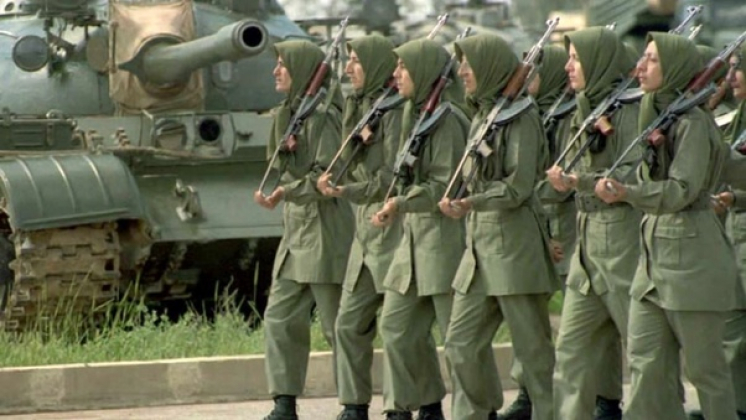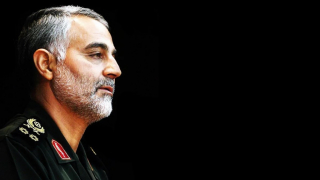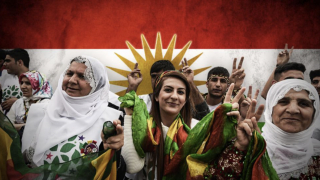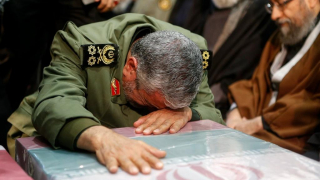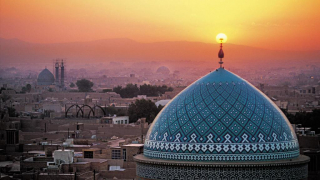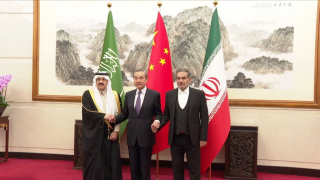The social status of the MEK among the people of Iran and the opposition in exile
The People’s Mojahedin of Iran (PMOI), mostly known as MKO (Mojāhedin-e Khalq Organization), was a paramilitary group founded in 1965 in Iran. After the overthrow of Mohammadreza Pahlavi and the victory of the Islamic Revolution in 1978, this group, claiming to be the main factor in achieving the Islamic Revolution, started to stir up hostility towards the new Islamic government of Iran. In 1981, the MKO declared an armed revolt against the Islamic Republic of Iran. Carrying out several terrorist operations on large and small scales, the group made more than 17,000 martyrs of Iranians. The two most important operations of MKO were the bombing of the prime minister’s office and headquarters of the Islamic Republic Party (IRP) of Iran, which caused the martyr of the president, prime minister, head of the Supreme Court of the Islamic Republic of Iran and more than seventy leading officials of Iran. After absconding from Iran, the Mojahedin-e-Khalq relocated to Iraq, and Saddam Hussein, the dictator of Iraq, welcomed it into the bosom of his country. There, they took up weapons against their own country and participated in two operations against the Islamic Republic of Iran.
In early 1988, Iran and Iraq accepted a cease-fire agreement under the terms of UN Resolution 598. However, under the delusion that they could conquer Tehran in a few days, the MEK, with the support of Saddam Hussein’s army, attacked Iran and crossed the borders, committing ferociously and ruthless felonies like hanging and burning innocent people.
Though pretending to be the claimant of human rights and the legitimate alternative to the Islamic Republic of Iran, the MEK today is doing its best to slam the Islamic Republic of Iran.
After about 25 years of residing in Iraq and following the overthrow of the Baathist regime of Saddam Hussein, the MEK was expelled from this country and resettled in Albania with the financial support of some Arab countries and the direct support of the United States.
The performance of the Mojahedin-e-Khalq (MEK) since the foundation of the Islamic Republic of Iran clearly shows that in critical historical moments, this group has always been quite athwart the people of Islamic Iran.
The track record of terrorist activities of the MEK since the Islamic revolution has not only made it the primary terrorist opposition group to the Islamic Republic of Iran but has also placed it on the list of terrorist organizations (FTO) in America, Europe, and Australia.
The political and social conditions of Iran during the Pahlavi period, the leftist and eclectic ideas of the group, and its failure to gain credibility in the political atmosphere after the victory of the Islamic Revolution were three fundamental factors that influenced the terrorist actions of the MEK. The direct support of regional and international powers also played a significant role in expanding and continuing their terrorist measures.
However, facing a strategic deadlock after the US invasion of Iraq and the overthrow of Saddam’s regime, and after about five decades of terrorist actions - which had made Iran one of the biggest victims of violent terrorist acts in the world - the Mojahedin-e-Khalq is now seeking for a characteristic and functional change.
Amongst other opponents, the terrorist group of the MEK has done its utmost to organize propaganda and military activities against the Islamic Republic of Iran. By entering the military phase and starting the armed struggle on June 20, 1981, this group cooperated with the West and Saddam Hussein in the imposed war against Iran.
After the Iraq-Iran war, the Mojahedin-e-Khalq has continued its anti-Iran measures, and in addition to terrorist actions against Iranian officials and people, pursued hostile policies against Iran’s national interests through security and parliamentary lobbies in Europe and America and holding numerous meetings and demonstrations, spying and providing information about Iran’s nuclear programs, intensifying pressures against Iran in the AMIA case, human rights and the nuclear programs, and sowing disunion in the relations between Iran and its neighbors.
Moreover, establishing its military bases in Iraq and as a strategic ally to Saddam’s private army, the MEK played a vital role in suppressing the uprising of Iraqi Shiites and Kurds in 1991. All these activities have caused this group to be placed on the list of terrorist organizations in the United States, the European Union, Canada, and some other countries.
Yet, after the US invasion of Iraq and the siege of the MEK forces in Ashraf base, the transferring of the responsibility of the camp to the Iraqi army, and the Iraqi government’s deadline for its departure from this country, the Mojahedin-e-Khalq is in the delicate, complicated and ambiguous situation due to the internal changes occurred inside the group, such as the disappearance of Masoud Rajavi, the leader of the group, and the expansion of Maryam Rajavi’s activities in Europe, along with the elimination of the name of the MEK from the list of terrorist organizations in England and the European Union, and the attitudes for and against it in America and Europe.
The activities of the group and the stands taken by the MEK in Albania against the people of Islamic Iran also show that this group still takes a destructive and terrorist approach against Iran. This approach once led to physical eliminations and assassinations, but now it is conducted by soft and personal assassinations through troll farms.
Regarding these records, what comes to the minds of the Iranians is merely hostility and opposition toward the people of Islamic Iran. This kind of opposition, represented in its worst possible way by standing next to the enemies of Islamic Iran, has raised an absolute hatred toward the MEK among the people of Iran.
This deeply rooted hatred for the MEK and its lack of social status among the people of Iran is so loud that some American officials have declared their detestation of the members of the Mojahedin-e-Khalq.
Elizabeth Stickney is a Persian-speaking spokeswoman for the US Department of State. In response to the presence of some American officials at the annual summits of the Mojahedin-e- Khalq, she said that the figures attending the meetings of (anti-Iranian) groups are not government officials and the Mojahedin-e-Khalq (hypocrites) group has no place with the people of Iran. In an interview with Deutsche Welle television, she added: Those who interact with this group are not US government employees. As we have already said, the Mojahedin-e-Khalq holds no place with the people of Iran.
Taking this kind of stance from the United States, and expressing it officially, shows the lack of status and credibility for this group on the part of these countries.

